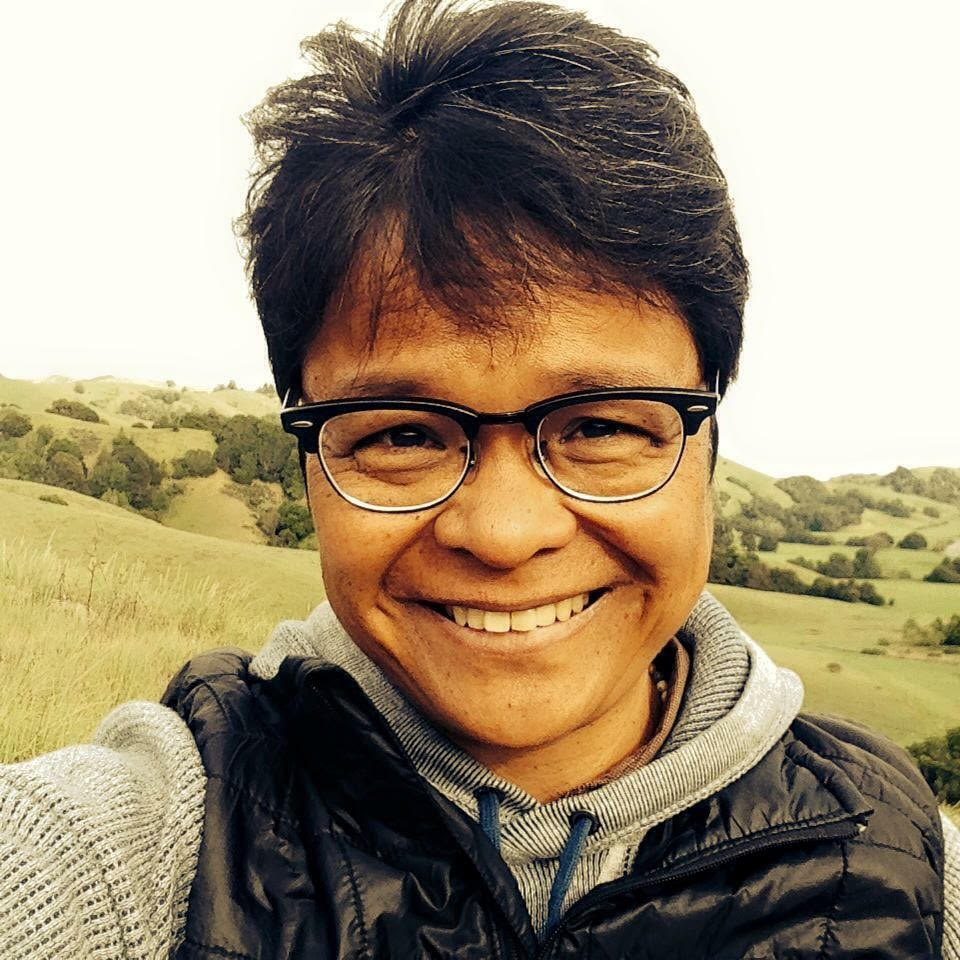La Sarmiento, Insight Meditation Community of Washington and Inward Bound Mindfulness Education
Bio:
La Sarmiento has been practicing Vipassana meditation and has been a member of the Insight Meditation Community of Washington since 1998. In September 2012, La graduated from the Community Dharma Leadership IV program sponsored by Spirit Rock Meditation Center. Since 2005, La has been the guiding teacher/leader of the IMCW Lesbian, Gay, Bisexual, Transgender, and Questioning (LGBTQ) Sangha and the IMCW People of Color Sangha. Since 2011, La has also co-led the DC Monthly Teen Sangha for youth between 13 – 19 years of age and has led mindfulness teen retreats for Inward Bound Mindfulness Education. La has been a body/energyworker in private practice since 1992 and teaches mindfulness-based Reiki classes with their life partner Wendy Taylor in Washington, DC.
For more information on La, check out their website, www.lasarmiento.com.
1. Why is our work important to you?
When I first attended dharma classes and retreats 18 years ago, I did not at all see myself reflected in the teachers or sanghas I sat with. When I went to my first People of Color retreat at IMS, I was shocked at how different an experience it was to finally be reflected on so many levels. The work of Trans*buddhists is vital in providing trans* dharma practitioners an opportunity to know that they are not alone, that there is a community that is supportive, understanding, and accepting of who they are, which provides an opportunity to deepen into the practice more easily than if subjected to only dominant culture retreats. I’m deeply grateful to all our trans* siblings who saw the need and manifested it into a beautiful reality.
2. What have been your personal experiences as a trans or gender non-conforming person practicing in Buddhist communities?
As someone who at an early age used assimilation as a survival and coping mechanism, it was not difficult for me to conform to dominant culture spaces. When I began to own my trans* identity more and asked folks to refer to me by the pronouns they/their/them, it was like coming out all over again but moreso as I identify as gender non-conforming than identifying with the binary. Even as a person of color, I experienced dominant culture folks feeling uncomfortable making the distinctions as it was (in their perception) counter to the concept of “no-self” or that “we’re all one.” It’s been a great practice of patience, tolerance, acceptance, and compassion to ride through the ignorance and continue to be true to myself.
3. What questions have come up for you as a trans or gender non-conforming person in Buddhist practice?
The question “What is the importance of identity in this practice” has been the main one. From my experience, it’s in having a strong sense of self that I’m then able to let go of that self. And not before.
4. In what ways (if any) do you feel that your experience of being trans or gender non-conforming has supported or deepened your practice?
Being gender non-conforming, I feel I see the world from a perspective that’s not binary or from a polarized or extreme vantage point. It actually feels as close to the middle-way as I can get. I believe I’m able to have a balanced blend of experience than one that is fixed in any way.
5. In what ways (if any) do you feel that your experience of being trans or gender non-conforming has created difficulty for you in your practice?
No difficulty. Just challenges in continuing to keep being my truth and modeling for others that it’s vital to be who you are and not who others want you to be.
6. What do you most want others to know about the experience of being a trans or gender non-conforming person connected with Buddhist practice?
See # 4.
See # 4.
